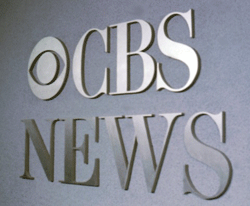CBS, Westmoreland Agree to Disagree
The jury in the Westmoreland vs. CBS trial would never render judgment on these matters or decide whether “The Uncounted Enemy” had libeled the general. On February 17, 1985, Westmoreland and CBS reached an agreement to settle the lawsuit. In a joint statement released a day later, the two parties stated that they “trust their actions have broadened the public record” on the Vietnam War. They said that they  “believe that their respective positions have been effectively placed before the public for its consideration and that continuing the legal process at this stage would serve no further purpose.” CBS declared that it “respects Gen. Westmoreland’s long and faithful service to his country and never intended to assert, and does not believe, Gen. Westmoreland was unpatriotic or disloyal in performing his duties as he saw them.” For his part, the general expressed his respect for “the long and distinguished journalistic tradition of CBS and the rights of journalists to examine the complex issues of Vietnam and to present perspectives contrary to his own.”1
“believe that their respective positions have been effectively placed before the public for its consideration and that continuing the legal process at this stage would serve no further purpose.” CBS declared that it “respects Gen. Westmoreland’s long and faithful service to his country and never intended to assert, and does not believe, Gen. Westmoreland was unpatriotic or disloyal in performing his duties as he saw them.” For his part, the general expressed his respect for “the long and distinguished journalistic tradition of CBS and the rights of journalists to examine the complex issues of Vietnam and to present perspectives contrary to his own.”1
Most observers concluded that the settlement favored CBS because it did not contain an explicit apology for the broadcast or any monetary compensation, and that Westmoreland probably could have achieved a much stronger settlement before going to trial. The Washington Post reported that many Westmoreland supporters believed that the general had “run out of money” to continue the costly litigation against a powerful and rich television network. Several conservative groups had helped fund the litigation, and one such group, the Capital Legal Foundation, represented the general. However, donations had apparently dried up. Even so, the Washington Post reported that the general’s conservatives backers “reacted with shock and sorrow” at the settlement.2 The judge’s draft instructions to the jury also played a role in the settlement. Judge Leval set a high standard of proof that the broadcast was knowingly or recklessly false. The high standard of proof forced the chief lawyer for Westmoreland, Dan Burt, to seek the best settlement he could get.
CBS Takes a Jab at Westmoreland's Backers
The litigation was also expensive for CBS, and perhaps this played a role in the settlement. The settlement also meant the network did not have to take a chance on the jury’s verdict. Both sides claimed victory, however. Westmoreland said that the joint statement amounted to an apology that cleared his name and that was all he was after. CBS released a statement that declared, “We continue to stand by the broadcast.” CBS added: “Nothing has surfaced in the discovery and trial process now concluded that in any way diminishes our conviction that the broadcast was fair and accurate and that it was a valuable contribution to the ongoing study of the Vietnam era.” In a jab at Westmoreland and his conservative backers, CBS said, “We regret that Gen. Westmoreland and his supporters felt compelled to bring the suit…The complex and controversial issues of the Vietnam war are more appropriate to ongoing public inquiry and debate than to judicial determination.”3
“Westmoreland finally declared victory and abandoned the field. We were dead right on the Westmoreland story.”Mike WallaceMike Wallace did not have an opportunity to testify at the trial before the settlement, but he has remained a staunch defender of the broadcast. In a 1997 interview with the Fox news network to discuss his long career, Wallace flatly stated, that “General Westmoreland lied” as part of a pattern of official prevarication regarding the Vietnam War. This was a restatement of the argument made by correspondents from the conflict: the military had deliberately misled the public. In reference to the settlement of the lawsuit, Wallace said, “Westmoreland finally declared victory and abandoned the field. We were dead right on the Westmoreland story.”4 In the end, Westmoreland and CBS agreed to disagree: they settled the lawsuit by leaving it up to the public and posterity to consider the issues raised by “The Uncounted Enemy.”
______________________________________________
1“Westmoreland and CBS Joint Statement: Continuing ‘Would Serve No...Purpose,’” Washington Post, 19 February 1985, p. A10.
2James R. Dickenson and Eleanor Rudolph, “Halting of Suit Dismays Westmoreland Backers,” Washington Post, 21 February 1986, p. A4.
3“CBS Statement: ‘We Continue to Stand by the Broadcast,’” Washington Post, 19 February 1985, p. A10.
4Mike Wallace, interview with Bill O'Reilly, “The o’Reilly Factor,” Fox News Network, Lexis-Nexis Academic Universe, 4 May 2000.